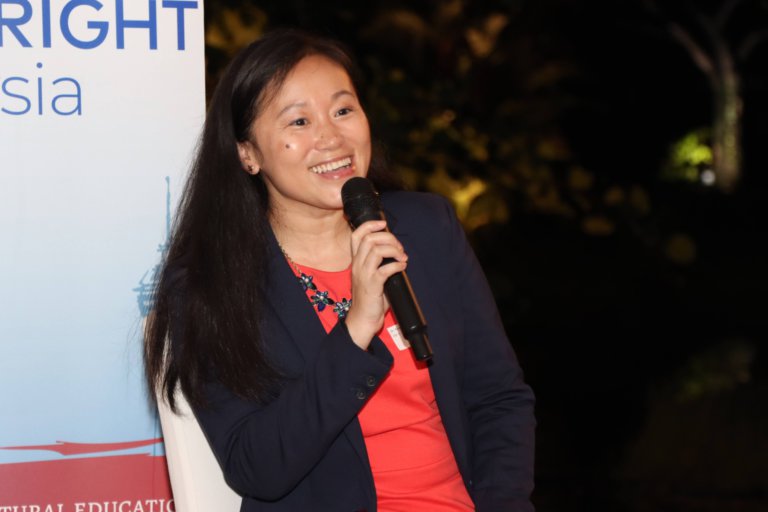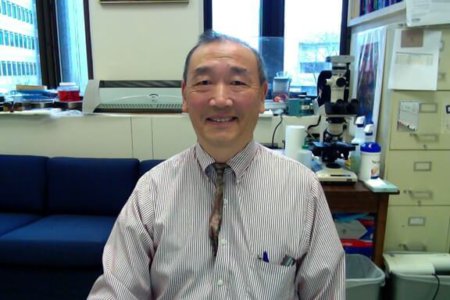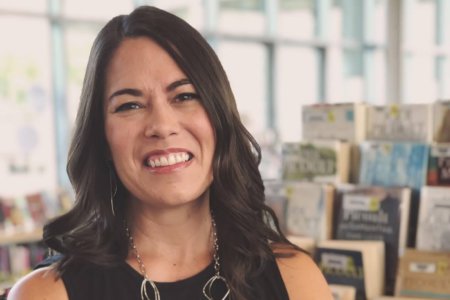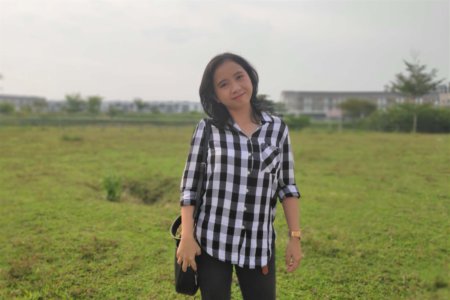
As a Fulbright scholar at Taylor’s University, Dr. Kaishan Kong‘s love for language, culture and tradition has brought her intercultural journey full circle.
“Fourteen years ago, I moved to the US with all the accumulated knowledge and skills from China to promote Chinese culture and enhance my teaching career. I also learned about the American side of things after spending 14 years in the US, so I wanted to come back to Asia and contribute to this part of the world,” she tells Study International.
Kang, an associate professor at the University of Wisconsin-Eau Claire, firmly believes that culture can connect people from different walks of life. The Chinese professor shares: “I believe people’s pride to have their own culture is shared, and they should be proud of the cultures and values that shape who they are. I see people share similar values and how they manifest these values differently.”
We caught up with the Fulbright scholar on how she applied for the Fulbright scholarship programme and her interest in intercultural citizenship and competence:

Kong and her Chinese language students took advantage of a warm spring day by moving class outdoors at the University of Wisconsin-Eau Claire. Source: Dr. Kaishan Kong
How did you apply for the Fulbright US Scholar Programme?
I heard of Fulbright many years ago and knew it was one of the most prestigious awards in the world. Three years ago, I remembered sitting in a library applying for the programme, and I got the award two years ago. However, I could not come to Malaysia until now because of the COVID-19 pandemic.
While applying for the scholarship programme, I had imposter syndrome and started to doubt if I would get selected for this opportunity. On the flip side, I remember encouraging my students always to try when the opportunity presents itself. The worse case is that they get a rejection. That motivated me to practice what I preach, and it wouldn’t hurt if I didn’t get selected — I wouldn’t need to share the fact that I did not get the scholarship.

Kong (left) sharing her experiences as a Fulbright scholar at Taylor’s University during the Fulbright Malaysia Summer Soiree event on July 12, 2020. Source: US Embassy of Malaysia
What were some of the challenges you faced?
The challenge in applying for a scholarship will be not knowing what is considered a solid application. Thankfully, I did a lot of research on Fulbright’s website, which contained many valuable resources. The website had samples of past applications and weekly or bi-weekly seminars containing essential information about the programme. Fulbright also had a person responsible for each programme to whom you could reach out and schedule an appointment.
One of the things I felt that led to the success of my Fulbright application was storytelling. As the selection committee who sieves through many applications throughout the US, I had to distinguish myself from others and show why I am the best candidate, in addition to my knowledge and skills. I needed to convey my stories through writing.
In my application, I talked about how going back to Asia would come full circle and what I have been doing to promote intercultural communication. I also requested an appointment with one of the official officers for Fulbright since it is a resource we could use.

Prior to coming to Malaysia, Kong spent most of her time as an associate professor at the University of Wisconsin-Eau Claire. Source: Dr. Kaishan Kong
Tell us more about the research area you picked for this scholarship programme.
Absolutely. The topic of my research is “Developing Student’s Intercultural Competency in Foreign Language Education in Malaysia”. When I was thinking about my project in Malaysia, I tried to make it fit in a Malaysian context even though I had never been to Malaysia before this trip. Even then, I have heard many incredible things about the multilingualism and multiculturalism that existed in Malaysia.
Hence, I was curious to know what interculturalism means for people who grew up and received an education in Malaysia since they do not need to travel to experience it. They are immersed in interculturalism every day and are exposed to different languages.
My research area focuses on two things. I want to interview professors and students to see what intercultural competence means to them by asking the big question: how is Malaysia — this nation, this political entity, this country, this society — impacting them in understanding intercultural competence.
Their answers fascinated me because they showed that intercultural competence is part of their DNA — an attitude ingrained in them to respect people with different cultures, traditions, and languages. That is a powerful message.
The other reason was the community-engaged learning approach at Taylor’s University. I wanted to see how the professors introduced international students outside Malaysia to different cultures through community service. I aim to bring this knowledge back to the US to share with my colleagues.

The American Degree Transfer Programme was Kong’s top choice for the Fulbright US Scholar programme. Source: Taylor’s University/Facebook
What made you choose Taylor’s University?
Many universities in Malaysia — including Taylor’s University — are researching intercultural citizenship. Still, I could only choose one university for the Fulbright US Scholar Programme, and I feel fortunate to come to Taylor’s.
For several reasons, the American Degree Transfer Programme (ADP) at Taylor’s University was my top pick. Firstly, Taylor’s University is the leading private university in Malaysia. I have also heard about their open-mindedness and innovative teaching, along with a focus on community-engaged learning, which I am interested in.
Taylor’s University’s ADP also acts as a bridge between Asia and the US which has always been something I am passionate about. My university — the University of Wisconsin-Eau Claire — is one of the partner universities with Taylor’s. Being at Taylor’s also benefits my research interest and both campuses, which gives me the pleasure of acting as a bridge to connect Taylor’s and the University of Wisconsin-Eau Claire.

Kong had the chance to visit tourist spots in Malaysia, such as Batu Caves. Source: Dr. Kaishan Kong
What is it like to study in Malaysia as an international student?
Studying in Malaysia brought back many memories of my work in Asia. Since I was a professor in China before I moved to the US, my rapport with students was similar to the connection between students and professors in Malaysia. Here, students are respectful and professional, but you could also be friends with them and share more about your personal life.
My relationships with students were more professional throughout my 14 years in the US. Coming back to Malaysia, being on familiar grounds was a nice change. People here are friendly, and they are multilingual. Grab drivers tell me stories about Batu Caves.
Of course, I must mention the food as Malaysians pride themselves on the distinct local delicacies within the country, and I enjoy this variety of cultures.
What are some of your favourite Malaysian foods?
I love Laksa. I love the rich flavour and how it has many materials inside.
I also like Ipoh’s shredded chicken noodles and wanton noodles. Coming from Guangdong, I always ate wanton noodles with the soup. In Malaysia, the soup is separated, and it tastes terrific. In fact, I’m joining my friend to eat “Bak Kut Teh” [a popular pork rib dish] soon, and I am so excited about it!
You’ve studied and worked in the US, UK and Malaysia throughout your career. What was it like living in different countries?
As an international student pursuing my Master of Arts in Intercultural Communication at the University of Sheffield, I was excited as it was my first time living outside China. I knew I would only stay in the UK for one and a half years for my master’s degree, so I took the opportunity to travel. Everything was new to me; I learned many cultural differences through making mistakes, but it was a lot of fun.
Working as a part-time waitress allowed me to immerse myself in the culture. Instead of working a standard part-time job at a restaurant, I choose to work for an agency as an events waitress. Every two or three weeks, I would check to see the line-up of events and sign up to be a waitress at those events, which indirectly granted me free access to these unique opportunities.
For example, I could watch the Manchester United football games by selling beer as an event waitress. I attended the Sheffield mayor’s inauguration ceremony while studying in Sheffield.
Essentially, I felt fortunate as that part-time job allowed me to see many different things than a regular international student. Volunteering for asylum seekers and refugees also helped me to get out of my privilege bubble as I glimpse into the lives of these minority groups of people.
It is a different story for the US as I moved to live there. The tricky thing about staying in one place for an extended period is that it can be challenging to explain what it is like to live there since there are so many things to share. Being a local, I also did not feel the urge to travel and explore since I was under the impression that I would spend the rest of my life here and have more time to access these opportunities. It is different to when I was a student in the UK.

Kong graduated with a Master of Arts in Intercultural Communication from the University of Sheffield. Source: Dr. Kaishan Kong
How has studying in the UK, US and Malaysia helped shape your career in teaching about cultures and languages?
I am grateful for three opportunities. Studying my Master of Arts in Intercultural Communication at the University of Sheffield as a 26-year-old helped to confirm the career path I was going on.
In the US, it was a time that I developed my career since I went to the US with my master’s degree and obtained my Doctor of Philosophy in Second Languages and Cultures Education from the University of Minnesota. Currently, I am a tenured associate professor.
Studying in these countries showed me that liberal education does help people to build their understanding and compassion, and it substantially built my career. My time in Malaysia also elevated my career and broadened my research interest, allowing me to bring back the best practices here to benefit my community in the US.
Do you have any advice for students who want to pursue a career in linguistics and culture?
Go for it. I want students to shift away from the mindset of thinking that language is just a tool to communicate. It is more than a tool because a multilingual perspective fosters deeper levels of thinking because they will have more skills than people who only speak and think in one language.
I also want students to know that entering the field of linguistics will not contradict their interest in other disciplines. If anything, being in linguistics helps you think better and is a skill set you can use in other fields.
The ability to speak many languages will allow you to interact with people from different cultures, traditions and customs, broadening your horizons. Lastly, you should develop a passion or interest in learning a language to enjoy the process of learning.










